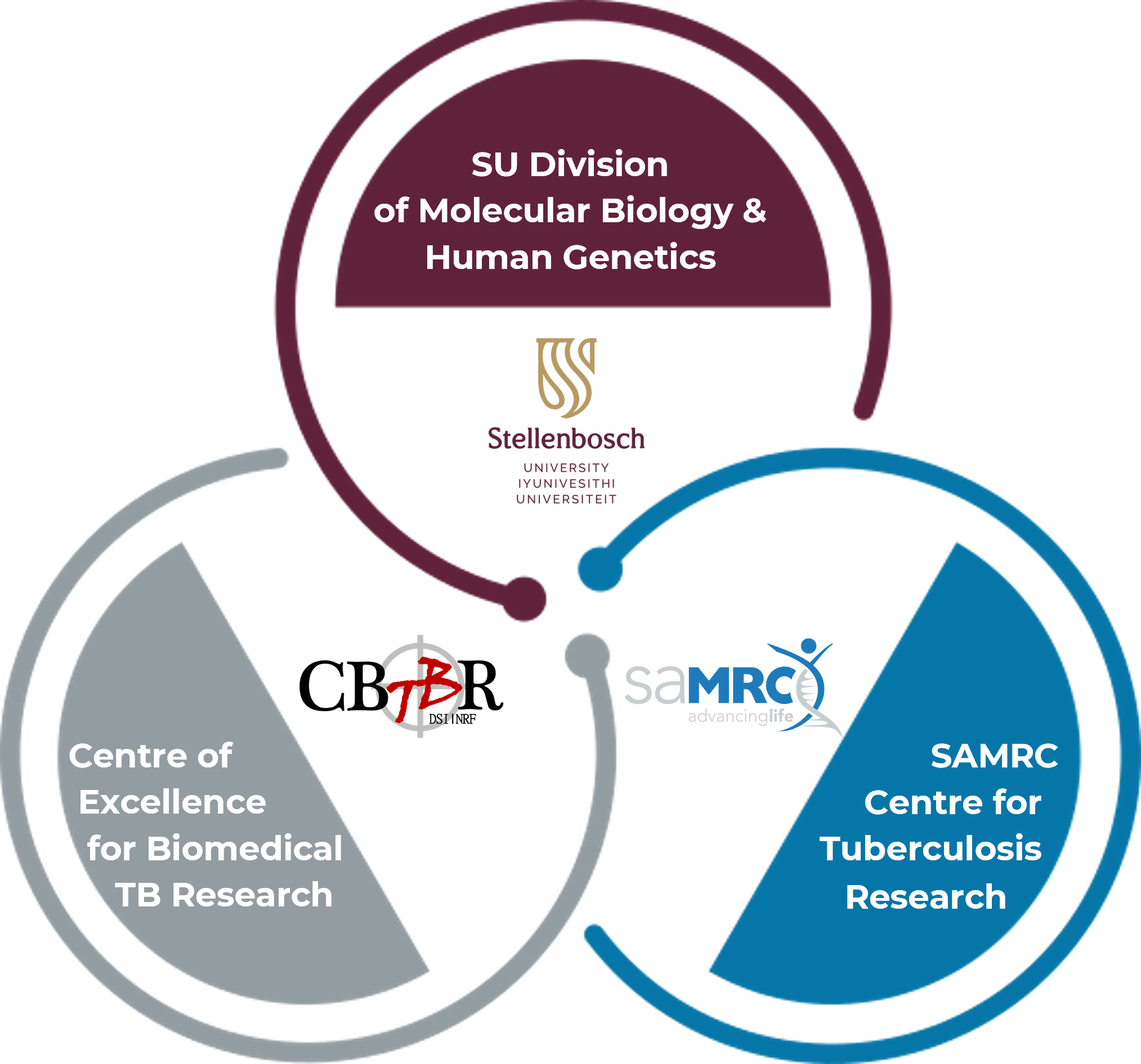The SAMRC Centre for Tuberculosis Research (CTR) is housed within the Stellenbosch University’s Division of Molecular Biology and Human Genetics (MBHG) along with the DSI-NRF Centre of Excellence for Biomedical TB Research (CBTBR).
These units are fully integrated into a seamless partnership with a common vision of fostering knowledge-based solutions to health challenges facing Africa. This world-class research facility is further strengthened by its positioning within a fast-paced and competitive academic environment where postgraduate student training includes mentorship through addressing key health and knowledge gaps.
Our Vision and Mission
To understand the burden of TB disease and contribute to policy through high quality fundamental and translational research and training of postgraduate students






